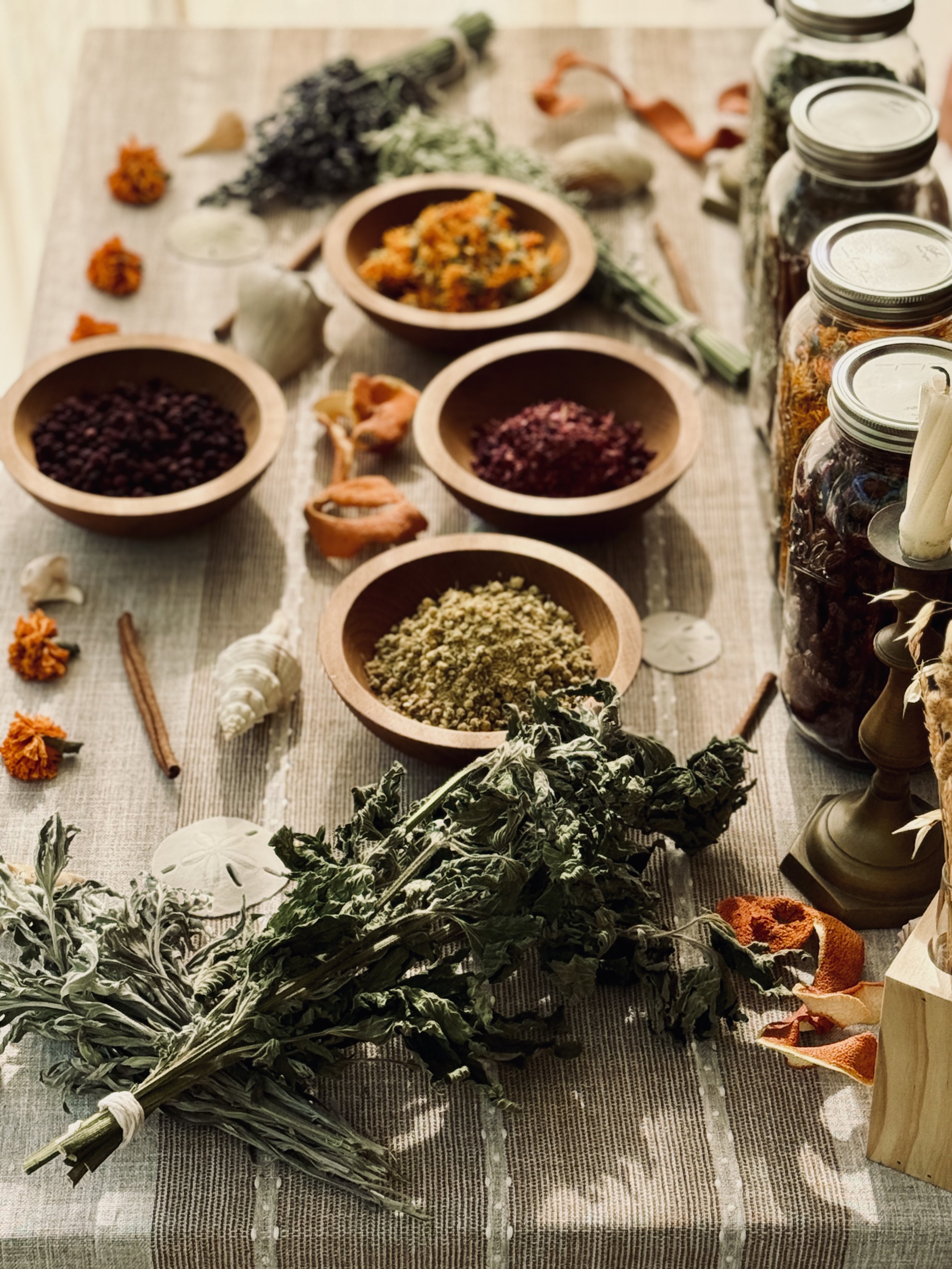
Questions And Answers
-
Herbalism is a traditional healing practice that takes both the art, science, and tradition of medicinal plants to promote health and prevent illness. Every culture around the world uses some form of these healing practices of herbal medicine.
-
In herbalism holistic approach considers the whole person—body, mind, and spirit—rather than focusing only on symptoms. This emphasizes balance and prevention.
-
Most pharmaceuticals in the US are often synthesized, refined, single chemical substances. Herbs are a complex system of hundreds of thousands of interrelated compounds that work synergistically that science doesn't always have the answers to. At one point in time, around 85% of modern drugs were originally derived from plants. Today, around 15% of drugs originate from plants.
-
Herbs can offer a wide therapeutic range of support that can be implemented in a general care protocol. Some of the main ways herbal medicine can benefit one's health journey are: preventing disease states, supporting overall health potential, offering symptomatic relief, and assisting with minor ailments, and chronic health issues.
-
This depends on a variety of factors. It can be as short as 2 minutes when taking a bitter formula to support gas and bloating relief, a few days if someone has caught the flu, or months if working on a chronic issue. When working with long-standing chronic imbalances, herbs might take some time to stimulate the body's healing mechanisms and to reverse the pattern it has been set in.
-
This depends on a variety of factors. It can be as short as 2 minutes when taking a bitter formula to support gas and bloating relief, a few days if someone has caught the flu, or months if working on a chronic issue. When working with long-standing chronic imbalances, herbs might take some time to stimulate the body's healing mechanisms and to reverse the pattern it has been set in.
-
As a Certified Herbalist, I am unable to take insurance.
